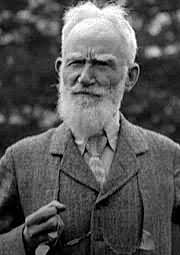It is very easy to assume that if someone does not agree with us it must be because they do not understand what we have to say. Now that is certainly an option; many times people do misunderstand. But I doubt that we would be content to have that criticism applied to ourselves. Both credo and paedo baptists feel to some degree that the other side doesn’t get it. Yet, whichever side of that debate we may be on, we probably would not accept that we don’t understand the other side.
And so it is helpful to distinguish between understanding and appreciating. I may have a grasp of the essential details of an argument, and yet it fails to have weight with me: I do not appreciate it. I remember reading in one of Bernard Shaw’s prefaces one of the most clear statements of the Gospel that I had encountered up to the time; it would have been silly for me to lay a charge of misunderstanding. The problem was not intellectual, on his part; although he grasped, he did not like it, he did not appreciate.
Now, when you add to that the fact that there are areas where we might be wrong, it becomes clear that disagreement is not always due to ignorance or stupidity on the part of the other guy. I am aware that we don’t feel wrong; but we didn’t feel wrong several years ago, either, and yet look how that turned out.
So in controversy, the problem is not always with them.

Yet that statement also needs to be balanced. Rejecting some things does show ignorance, stupidity, or moral turpitude. If someone does not believe that Jesus is the Christ, then that really is their problem. And of course, to some degree, all error is the result of sin and the damage that sin has wrought on our noetic faculties. But here we would do well to distinguish, between what must necessarily be a failing on the part of the adversary, and what may be a failing on our part (or what is a less significant difference). Failure to do so not only puts us in company with Calovius and leaves us in danger of a tu quoque: it is also a violation of the Golden Rule. There is no doubt that in controversy, at least on certain points, we would like the other side to listen carefully and entertain the possibility that we might be right; but then would Jesus’ words not obligate us to treat them likewise?








